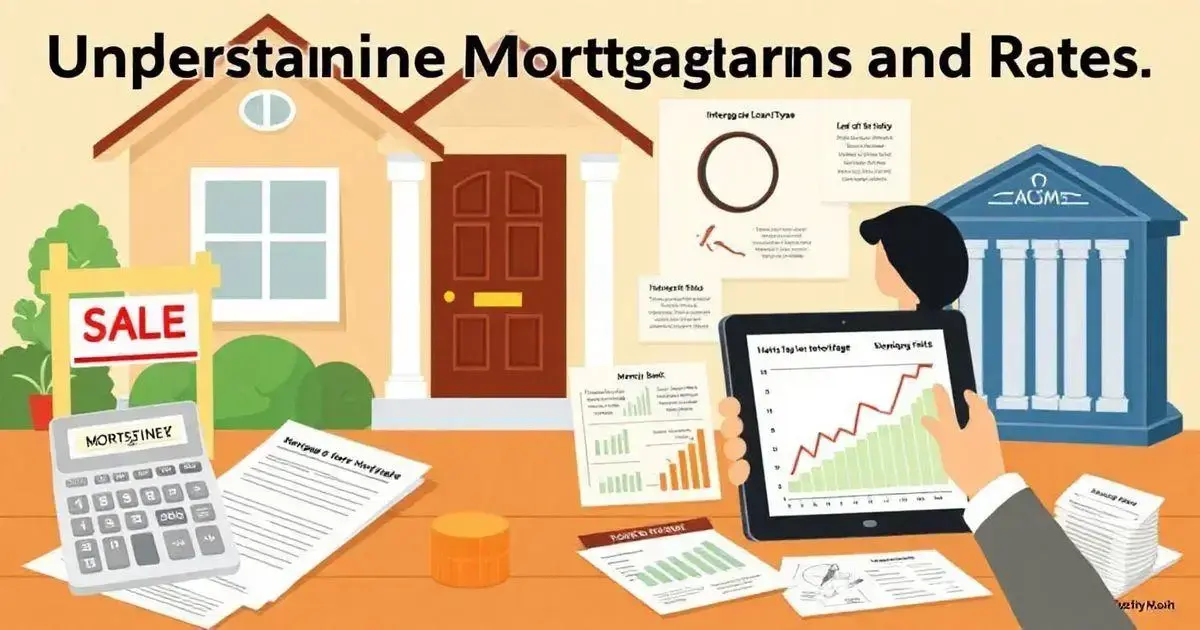The impact of credit score on mortgage rates is a game-changer for anyone looking to buy a home. This three-digit number doesn’t just reflect your financial history—it directly influences the interest rates lenders offer you. A higher score can mean lower rates, saving you money over the life of your loan.
Your credit score is like a financial report card, and lenders use it to gauge how risky it is to lend to you. Factors like payment history, credit utilization, and length of credit history all play a role. Understanding these elements can help you take control of your credit health and secure better mortgage terms.
Curious how to boost your score and unlock better rates? Keep reading to discover actionable tips and insights that can help you achieve your homeownership goals with confidence.
What is a Credit Score?
A credit score is a three-digit number that reflects an individual’s creditworthiness.
It is determined by several factors:
- Payment History: 35% – Shows how reliably a borrower pays back their debts.
- Amounts Owed: 30% – Considers how much of the credit limit is being utilized. Ideal utilization is under 30%.
- Length of Credit History: 15% – Examines how long credit accounts have been open.
- New Credit Inquiries: 10% – Indicates how many new accounts are opened.
- Types of Credit Used: 10% – Encourages diversification of credit.
Understanding your credit score helps manage financial health and can lead to significant savings on loans, such as mortgages.
How Credit Scores are Calculated

Calculating a credit score involves several factors that lenders use to evaluate a borrower’s creditworthiness. Payment history is the most significant factor, making up 35% of the score. This reflects whether an individual pays their bills on time, which is crucial when considering the impact of credit score on mortgage rates.
Amounts owed, which account for 30%, examines the total debt relative to credit limits. Keeping credit utilization below 30% is ideal. The length of credit history contributes 15%, and a longer credit history positively impacts the score. Additionally, new credit inquiries make up 10%, showing how many new accounts a borrower has applied for recently. Lastly, types of credit used accounts for 10%, encouraging a mix of credit such as credit cards and loans to enhance the score.
Understanding these components helps individuals manage their credit effectively and improve their chances of securing favorable mortgage rates. By focusing on these factors, you can better grasp the impact of credit score on mortgage rates and take steps to optimize your financial profile.
The Importance of Credit Scores for Mortgages
The importance of credit scores for mortgages cannot be overstated. Lenders rely heavily on credit scores to assess the risk of lending money, and this directly ties into the impact of credit score on mortgage rates. A high credit score indicates a reliable borrower, making it easier to secure a mortgage at a lower interest rate.
Conversely, a low credit score may result in higher rates or even denial of a loan. Understanding this can help potential homeowners take actionable steps to improve their credit before applying for a mortgage. Maintaining a good credit score not only affects mortgage approval but also influences loan terms, monthly payments, and total interest paid over time.
By prioritizing credit health, individuals can achieve better financial outcomes when purchasing a home. The impact of credit score on mortgage rates is undeniable, and taking control of your credit can open doors to more favorable lending opportunities.
Effects of Low Credit Scores on Mortgage Rates

The effects of low credit scores on mortgage rates can be significant and detrimental for potential homebuyers. When a borrower’s credit score is low, it often leads to higher interest rates and less favorable loan terms, highlighting the impact of credit score on mortgage rates. Lenders view low credit scores as a sign of risk, prompting them to charge more for lending money.
This increase in rates means that borrowers will pay more each month and a larger total over the life of the loan. Moreover, low credit scores can lead to loan denials, preventing individuals from achieving their homeownership goals. It is essential for buyers to understand this connection and take steps to improve their credit score before applying for a mortgage.
By addressing these challenges, homebuyers can mitigate the impact of credit score on mortgage rates and position themselves for better financial outcomes. Taking proactive steps to boost your credit score can make all the difference in securing a mortgage that fits your budget.
Ways to Improve Your Credit Score
Improving your credit score is essential for getting better mortgage rates. Here are some effective ways to improve your credit score:
1. Pay your bills on time: Timely payments show lenders you are reliable.
2. Reduce your credit card balances: Aim to keep your credit utilization under 30% of your limit.
3. Check your credit report: Review it regularly for errors and dispute any inaccuracies.
4. Limit new credit inquiries: Too many applications in a short time can harm your score.
5. Maintain old credit accounts: Keeping older accounts open can help improve your score.
6. Diversify your credit: Having a mix of credit types can positively impact your score.
7. Set up payment reminders: Use alerts to stay on track with due dates.
By following these steps, you can work towards a healthier credit score that will open doors for better mortgage options.
Understanding Mortgage Terms and Rates

Understanding mortgage terms and rates is crucial for homebuyers. A mortgage is a loan specifically for purchasing property, while the interest rate is the cost of borrowing that money.
Rates can be fixed or variable; a fixed-rate mortgage keeps the same rate throughout the loan, while a variable-rate mortgage may change after an initial period.
Key terms to know include principal, the amount borrowed, and amortization, the process of paying off the loan over time.
Understanding these terms helps buyers make informed decisions and find the best mortgage option for their financial situation.
The Role of Lenders in Setting Rates
The role of lenders in setting mortgage rates is a key aspect of the home buying process.
Lenders evaluate various factors, including credit scores, loan types, and the economic environment to determine the rates they offer.
When the economy is strong, rates may be higher because demand for loans increases.
Conversely, during economic downturns, rates often decrease to encourage borrowing.
Lenders also consider the loan-to-value ratio, which is how much the loan is compared to the property value.
A lower ratio usually leads to better mortgage rates.
Understanding how these factors impact rates can help borrowers make better financial decisions.
How to Compare Mortgage Offers

When comparing mortgage offers, it’s important to look beyond just the interest rate. Start by examining the annual percentage rate (APR), which includes both the interest rate and any additional fees. This helps you see the true cost of borrowing and better understand the impact of credit score on mortgage rates.
Next, consider the loan terms, such as whether it’s a 15-year or 30-year mortgage, as this affects your monthly payments and total interest paid. Check for closing costs, which can add up significantly, and ask lenders about points, or upfront fees that can lower your interest rate.
Lastly, make sure to read the fine print, since some offers may include terms that could impact your payments in the future. Taking the time to compare these factors will help you make a well-informed decision and minimize the impact of credit score on mortgage rates on your financial journey.
Final Thoughts on Credit Scores and Mortgages
Understanding the impact of credit scores on mortgage rates is essential for any potential homeowner.
By improving your credit score, comparing mortgage offers, and recognizing common myths, you can navigate the lending process more effectively.
Always stay informed and proactive about your credit health. These actions can lead to better mortgage terms and lower payments over the life of your loan.
In the end, a sound financial foundation can pave the way to achieving your dream home.
FAQ – Frequently Asked Questions About Credit Scores and Mortgages
What is a credit score?
A credit score is a three-digit number that reflects a borrower’s creditworthiness based on their credit history.
How does my credit score affect mortgage rates?
A higher credit score generally leads to lower mortgage rates, making it cheaper to borrow money.
What is a good credit score for getting a mortgage?
A good credit score for mortgage approval is typically considered to be 700 or above.
Can I get a mortgage with a low credit score?
Yes, but it may come with higher interest rates or stricter loan terms.
How can I improve my credit score before applying for a mortgage?
Paying bills on time, reducing credit card balances, and checking your credit report for errors can help improve your score.
What are common myths about credit scores?
Some common myths include that checking your own score lowers it and that you must pay off all debt before applying for a mortgage.
Are there any tools to help me monitor my credit score?
Yes, there are several free tools and services available to help you monitor and improve your credit score.
